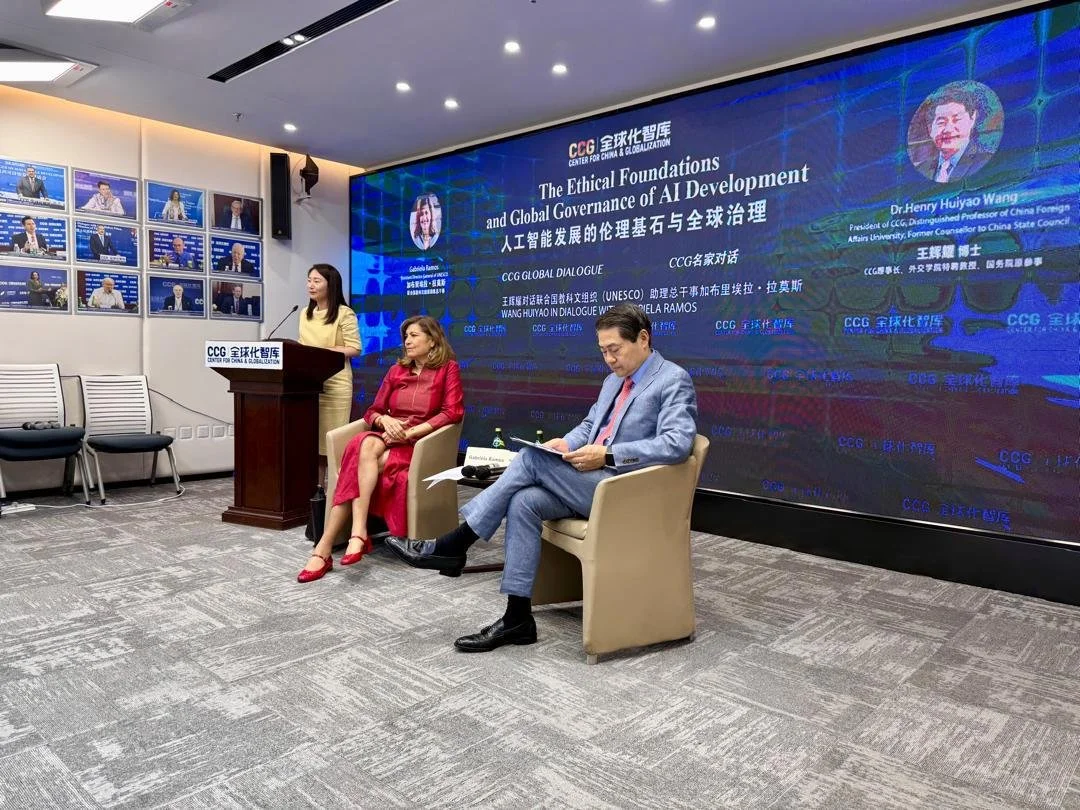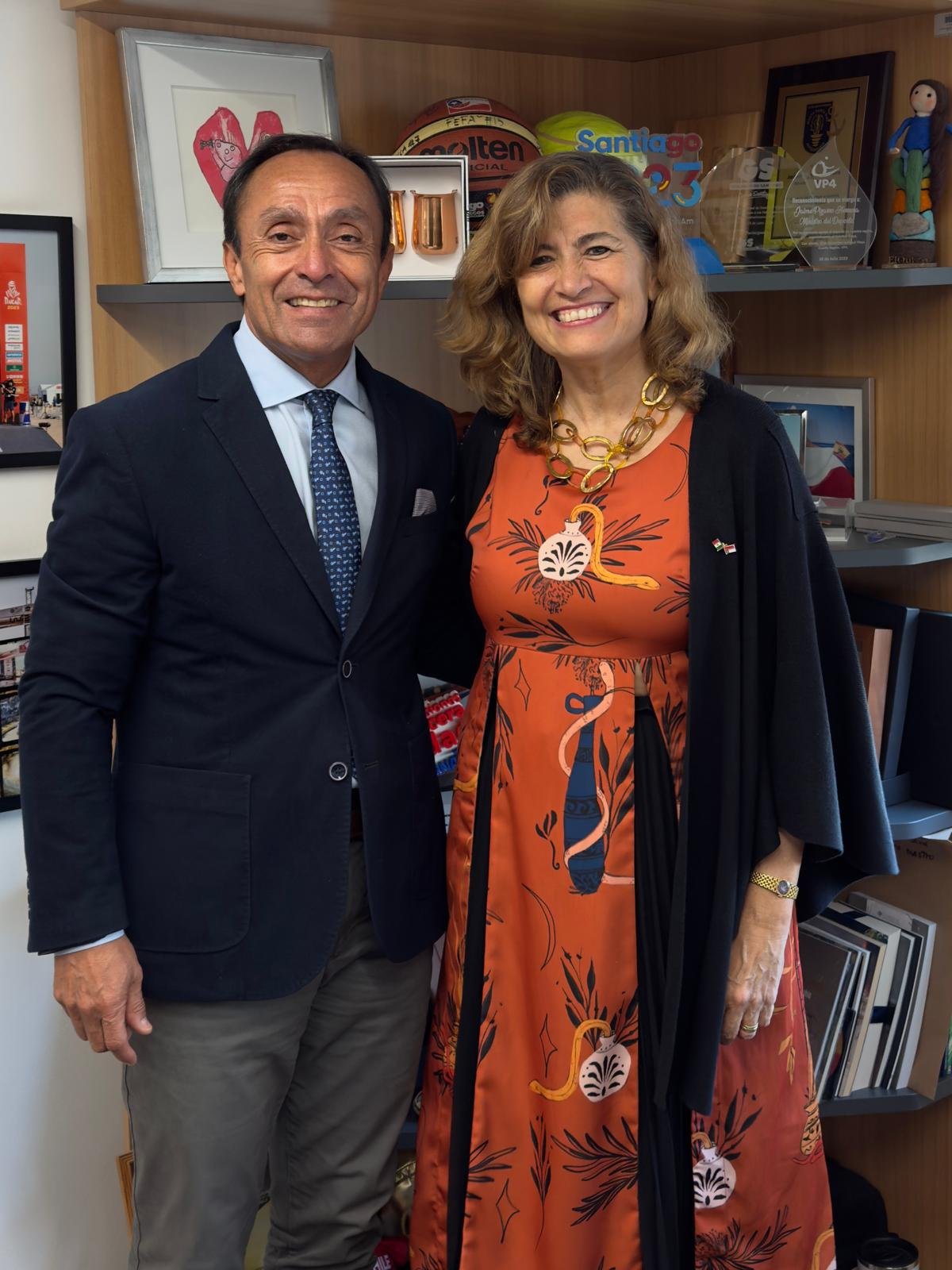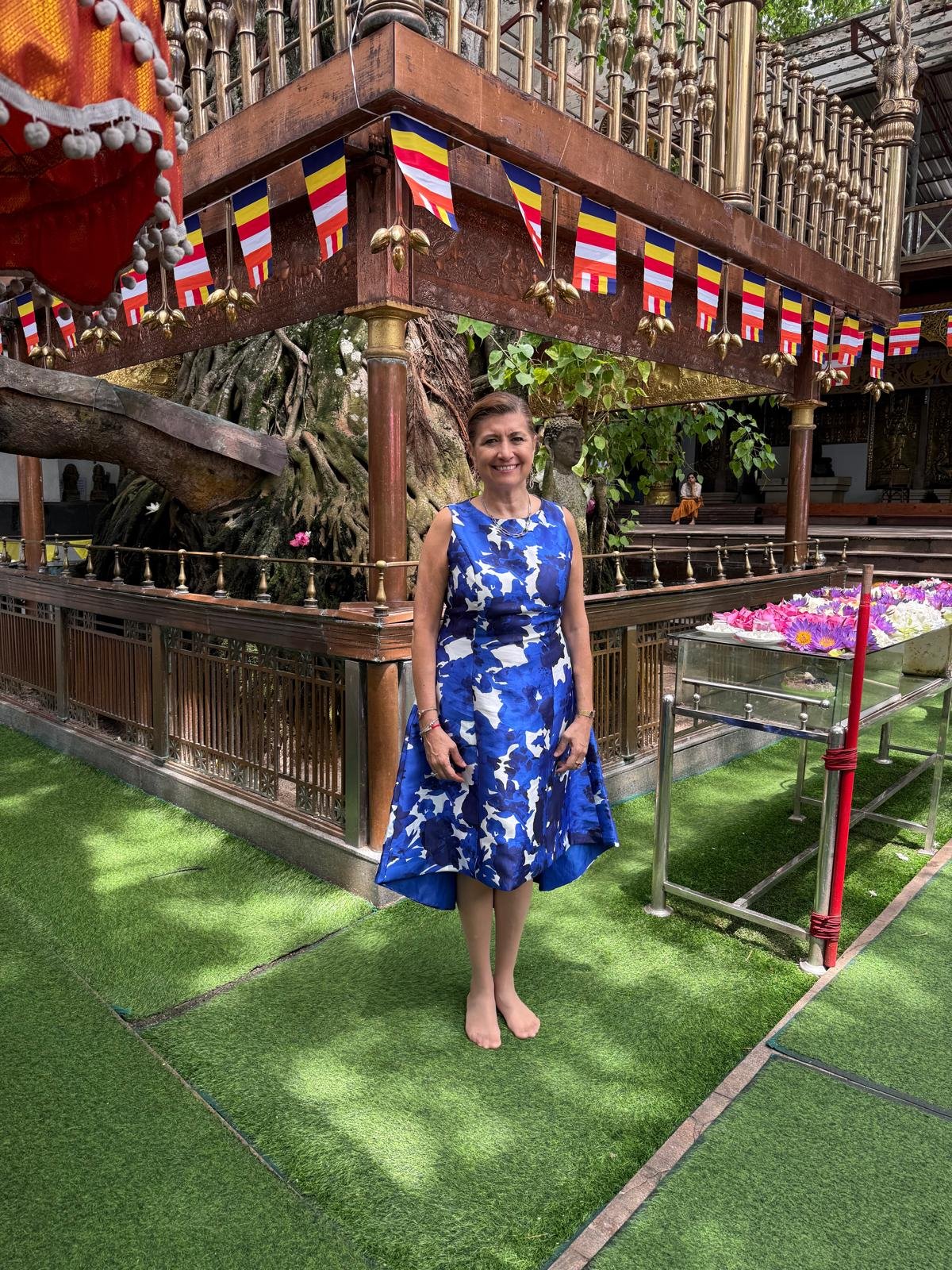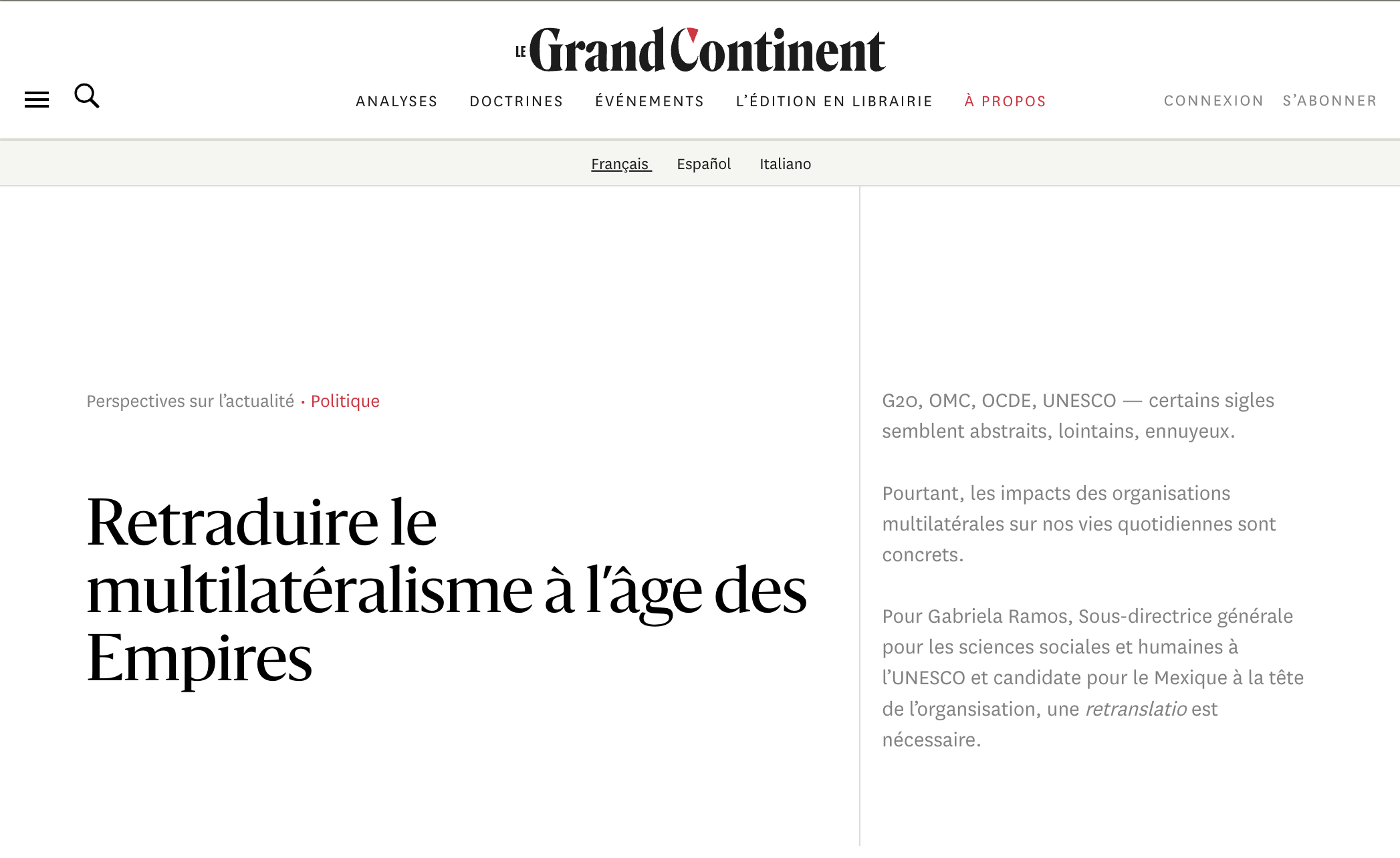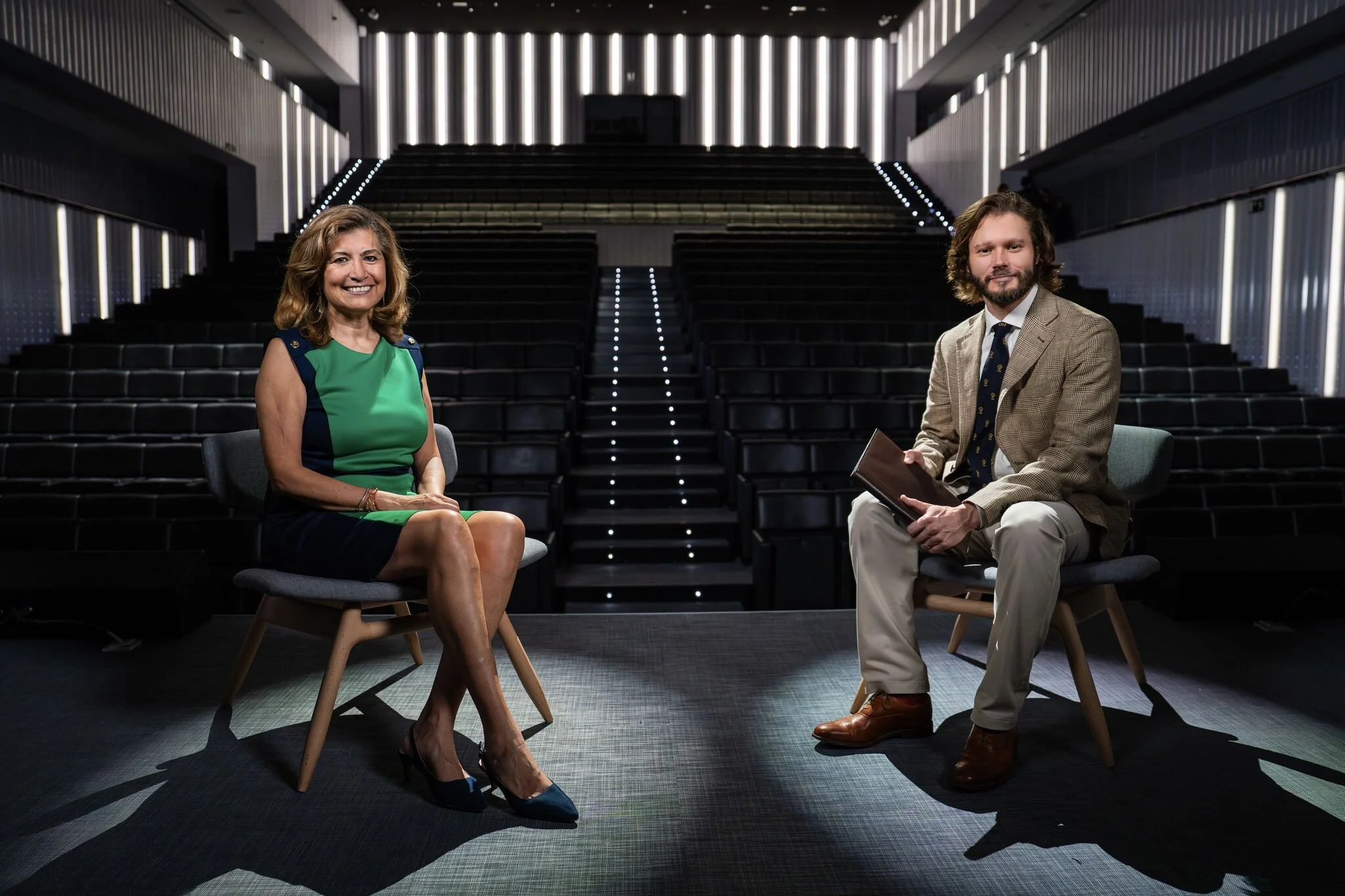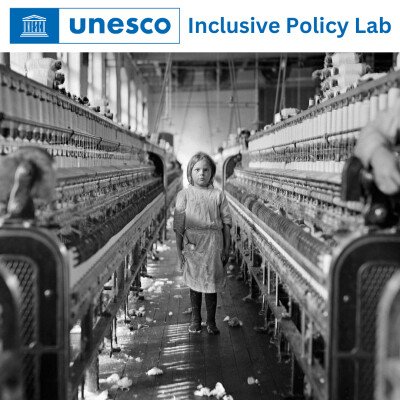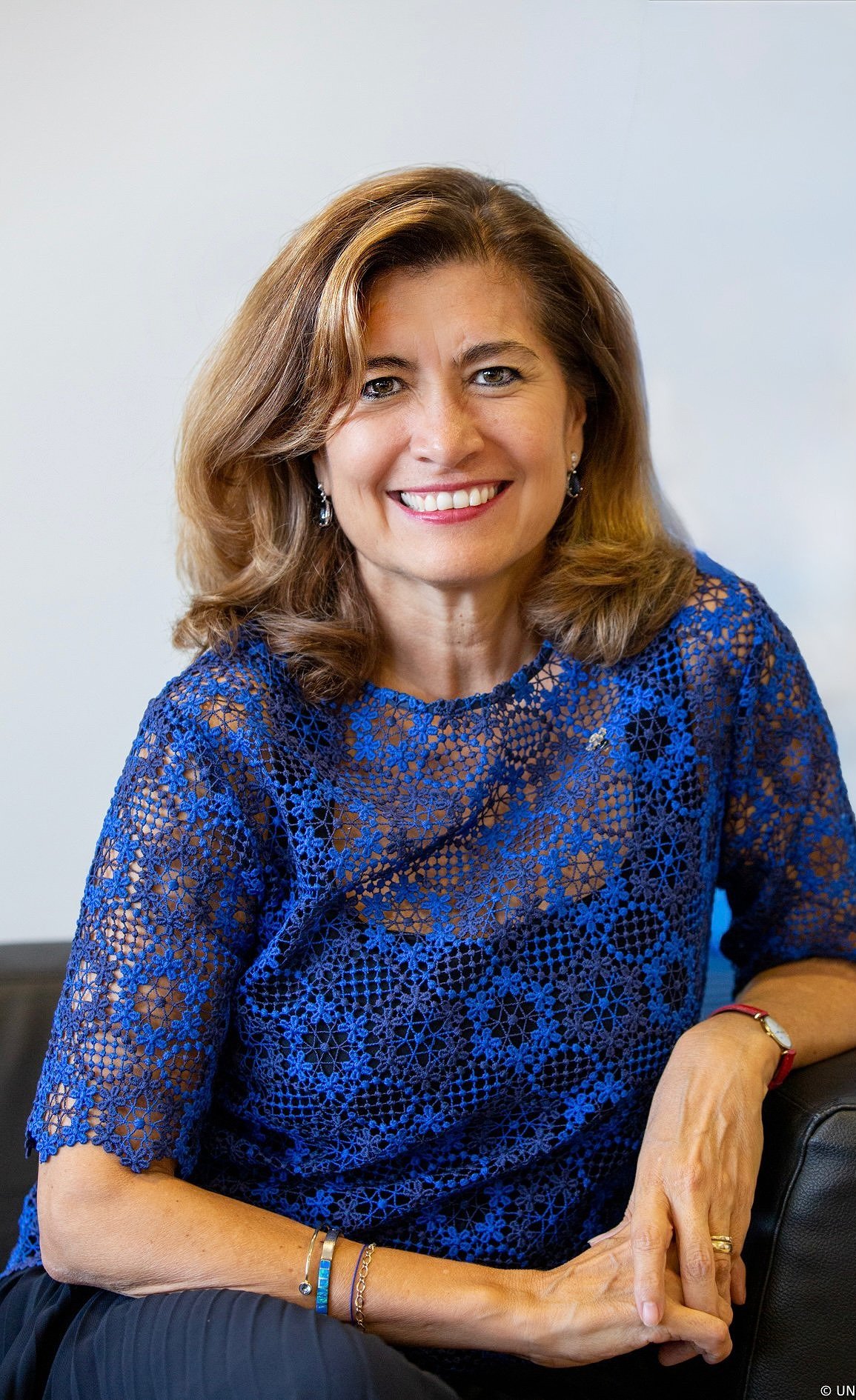
Shaping a More Inclusive, Innovative and Impactful UNESCO for the 21st Century
With deep gratitude for the support received and a sense of responsibility, Gabriela Ramos announces the withdrawal of her candidacy for Director-General of UNESCO. In close coordination with the Government of Mexico, it was concluded that this is a critical moment to prioritize unity and solidarity within the United Nations system.
Ms. Ramos, who has served as Assistant Director-General for Social and Human Sciences since 2020, reaffirms her profound commitment and duty to continue supporting UNESCO’s noble mission and the collective effort to build a stronger, more effective multilateral system.
INCLUSION
To ensure greater access to and quality of education, especially for out-of-school boys and girls, and greater investment in culture to promote development.
INNOVATION
To invest more in science, ensuring that science informs decision-making and ethically regulates converging technologies such as artificial intelligence. Science, to protect freedom of expression and thought, safeguarding journalists and researchers.
IMPACT
To achieve greater influence in global forums such as the G20, G7, and G77, and to work on the national priorities of our countries.
Watch the full interview for the office of Director-General, during the plenary meetings of the 221st session of the Executive Board (9 April 2025)

Gabriela Ramos is an accomplished international leader dedicated to building a more prosperous, just, and sustainable world. An economist, diplomat, and policy expert from Mexico, she brings over 30 years of global leadership experience. Throughout her career, she has played a pivotal role in advancing global agreements and implementing impactful reforms in artificial intelligence, gender equality, international taxation, inclusive growth, education, and climate action.
Since 2020, she has served as Assistant Director-General for Social and Human Sciences at UNESCO, delivering transformative results. Under her leadership, UNESCO has emerged as a global leader on AI ethics, anti-racism, and gender equality. She has also advanced youth empowerment, science-policy dialogue, and the role of sport in development, with a 143% budget increase, strong internal restructuring, and renewed team motivation. Key donors during her tenure include the European Union, Patrick McGovern Foundation, Japanese Development Cooperation, Ford Foundation, Nestlé and Nike.
Previously, at the OECD, she served as G20 Sherpa and Chief of Staff, leading major reforms including global tax reform, inclusive growth, education (PISA), and the Paris Agreement. She also helped expand OECD membership and tripled its budget.
Proud of Mexico, and my friend Alicia Buenrostro and her team, as the facilitator, along with Norway, Zambia, and Nepal for having steered the “Compromiso de Sevilla” — a major document addressing not only the financial gap for development, but also the structural issues that need to be addressed to deliver sustainable finance, and main outcome of the #F4D Conference.
Grateful for an inspiring visit to China—where every conversation reaffirmed the power of culture, science, education, and diplomacy to build a more #inclusive, #innovative, and #impactful world. From #AIEthics to cultural dialogue, these moments reminded me why we do what we do.
Did you know that more Paraguayans speak only Guaraní than only Spanish?
I was glad to visit Paraguay — a country proudly preserving Latin America’s linguistic and cultural richness. Paraguay’s leadership was on full display during the Intangible Heritage Committee in Asunción. Kudos to Minister @adriana__ortiz and Ambassador @ovelarlamas for their outstanding work!
The Mexican government, represented by five Ministries covering education, diplomacy, environment, culture, and science, formally presented my candidacy to the diplomatic corps accredited in Mexico, as well as to intellectuals, business leaders, university deans, and civil society.
it is time to reaffirm UNESCO’s role as the most humanist organization and the moral compass we urgently need.
Grateful for the warm welcome from the Ministry of Foreign Affairs and Education Minister Carlos Torrendell—and for reconnecting with longtime colleagues.
Sharing an inspiring come back to Chile. A country I’ve had the opportunity to work with for many years—first supporting its accession to the OECD, and more recently through regional leadership in artificial intelligence and the use of sports as a force for good.
The cherry on top? A powerful conference on education, culture, and science in the age of AI at Julio Portales University.
Reflecting on a recent article by Kumudini Hettiarachchi, I share how my early experiences in Mexico shaped my commitment to building a UNESCO that meets today's global challenges.
From a public school classroom to the global stage, my journey is driven by a deep belief in education, culture, and science as forces for peace, development, and inclusion.
I had the pleasure of delivering a public lecture at the India Habitat Centre, hosted by the Research and Information System for Developing Countries (RIS). joining diplomats, scholars, and policy experts for a forward-looking dialogue on Artificial Intelligence and ethics. I shared UNESCO’s global AI ethics framework—endorsed by 194 countries and now guiding capacity-building in over 70 nations—as a powerful example of multilateralism in action.
I had the opportunity to meet with Sri Lanka’s Prime Minister Dr. Harini Amarasuriya, Minister of Education MP Dullas Alahapperuma, and Minister of Foreign Affairs Hon. Vijitha Herath. Accompanied by Ambassador Federico Salas, we engaged in a constructive exchange on the future of UNESCO and the evolving role of multilateral institutions in tackling the pressing challenges facing global education systems.
During my recent visit to Dhaka, I had the honor of meeting Nobel Laureate and Chief Adviser Professor Muhammad Yunus. Our exchange reaffirmed my deep commitment to inclusive development, cultural cooperation, and principled leadership—values that lie at the heart of my vision for UNESCO […] I was particularly impressed by Bangladesh’s achievements in education, culture, and social equity. As I shared with Professor Yunus, “UNESCO sees Bangladesh not just as a member, but as a partner with real promise.”
It was a pleasure to catch up with Jaume Collboni, the first mayor to address the UNESCO Executive Council. Building on the momentum of the 4th Forum Against Racism and Discrimination in Barcelona, he presented the Global Anti-Racism Alliance—an initiative that received a favorable vote from 49 countries.
Posts from Gabriela Ramos
Posts from @gabrielailianramos





















Follow me!


